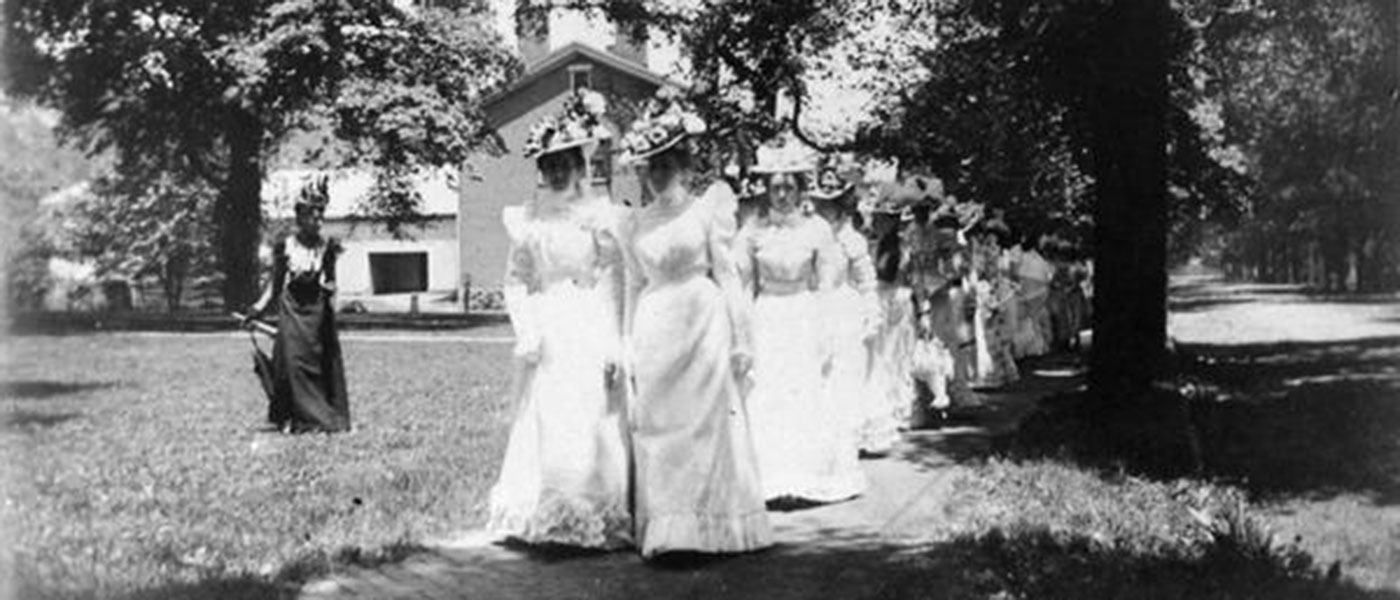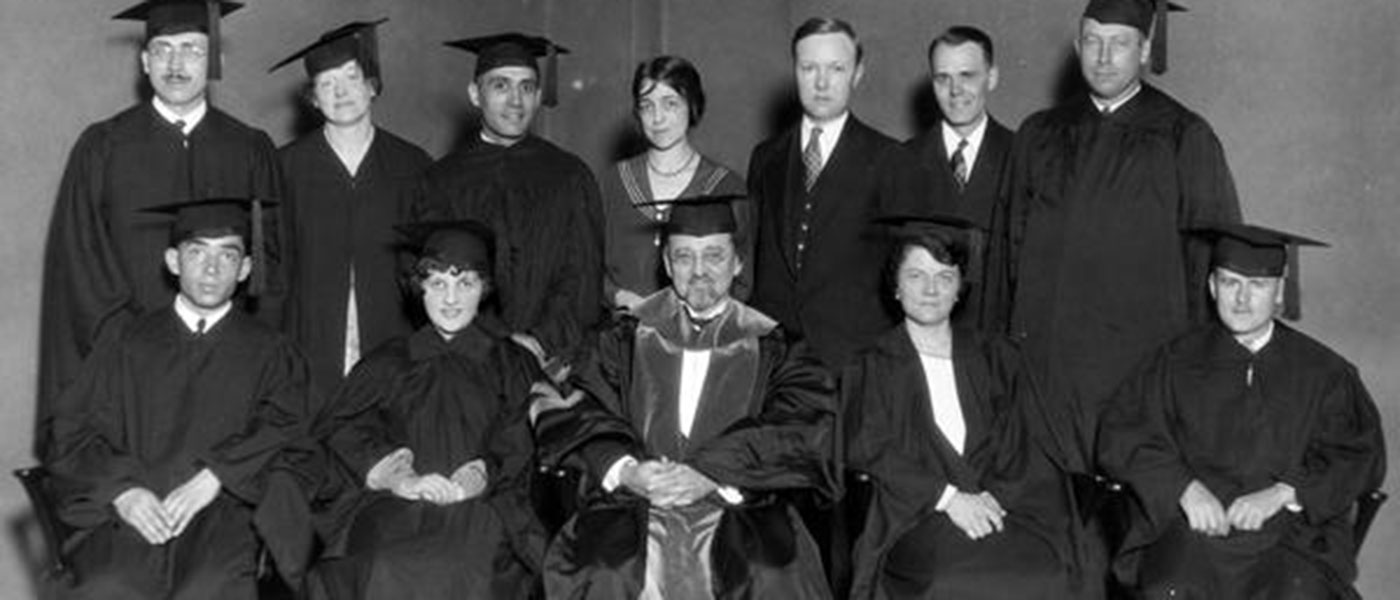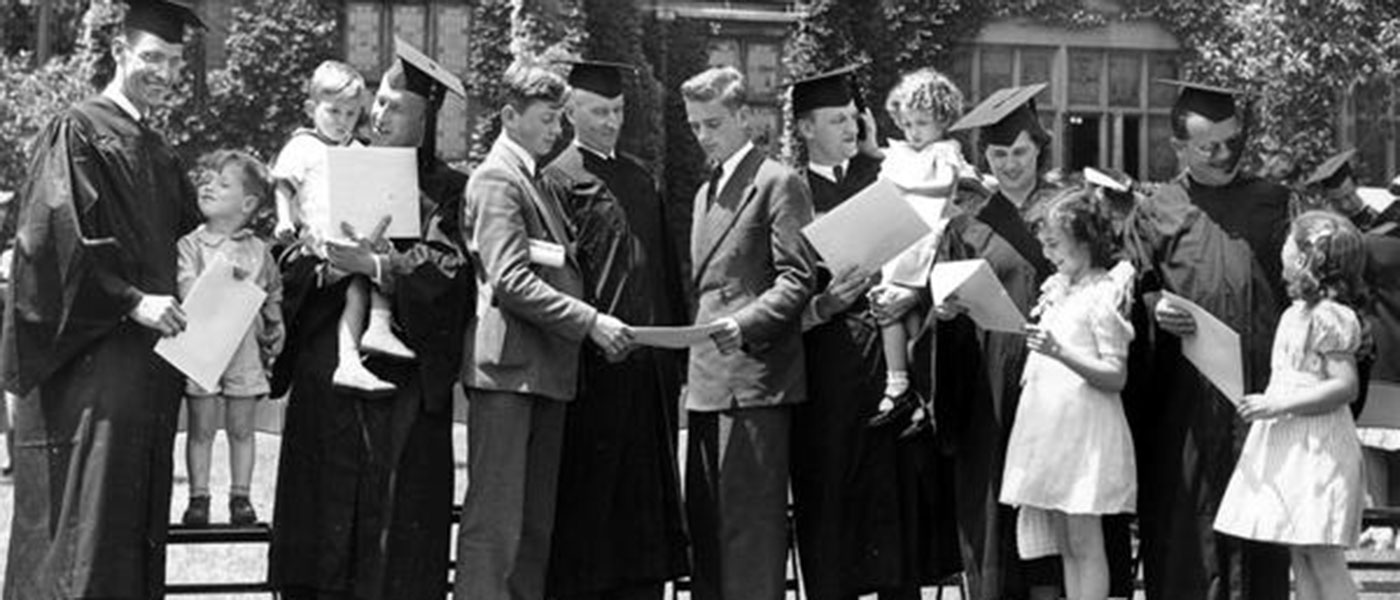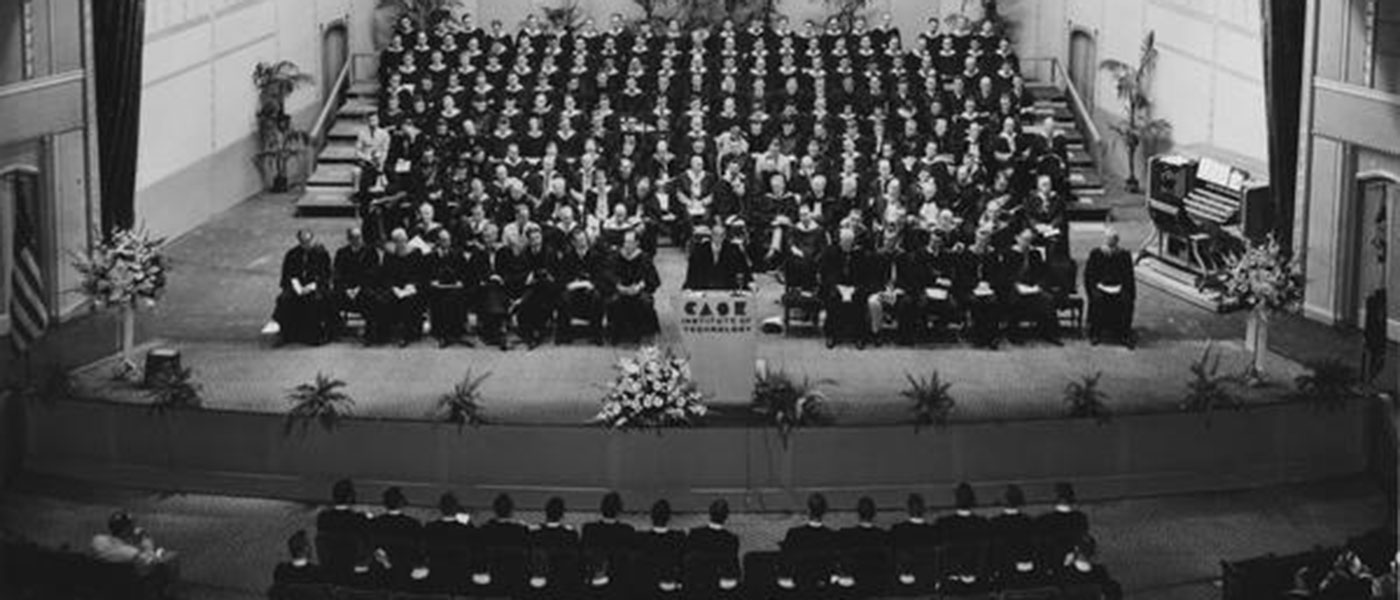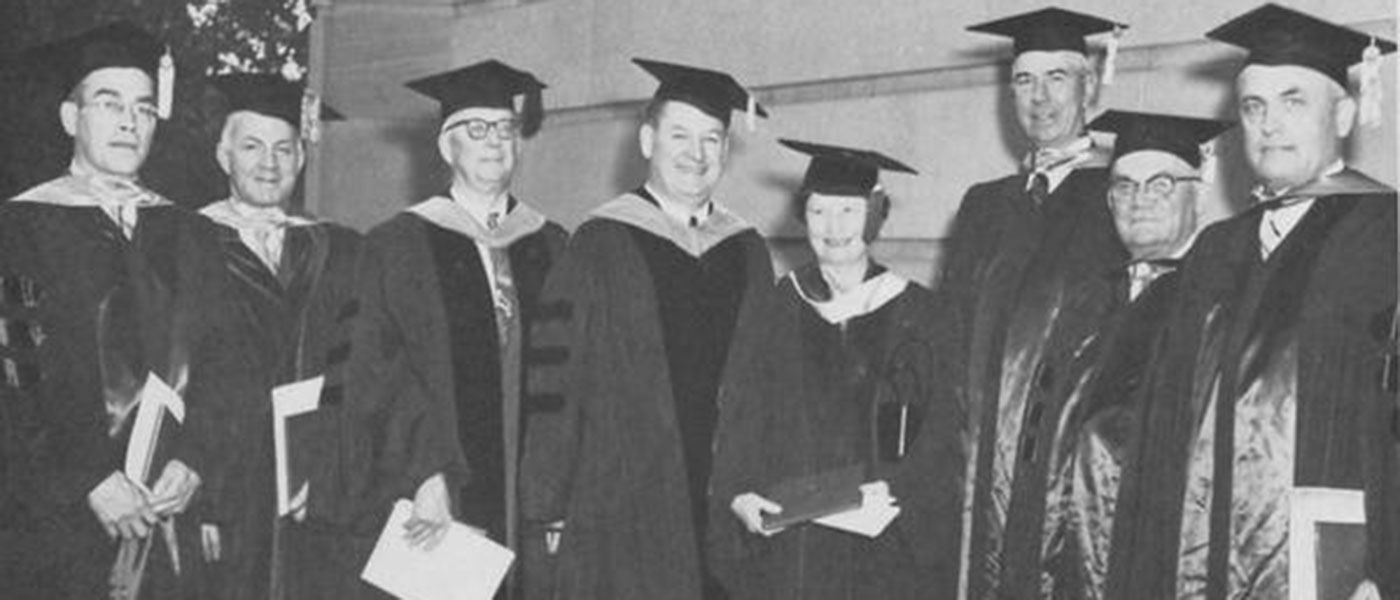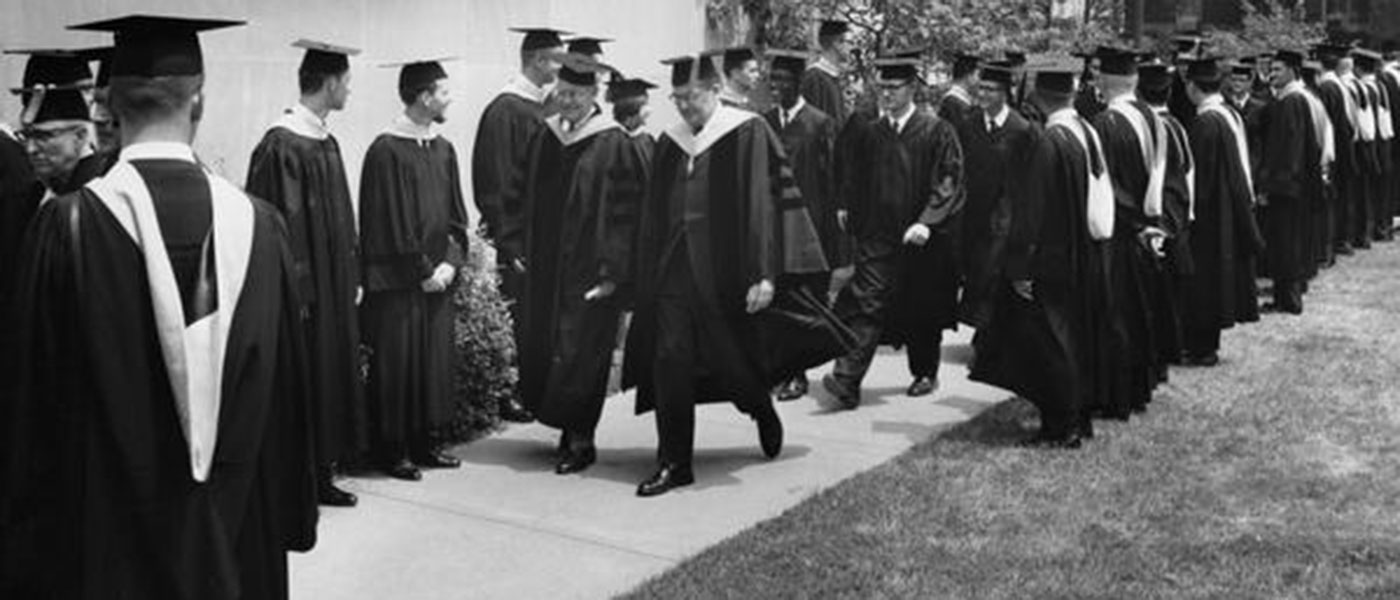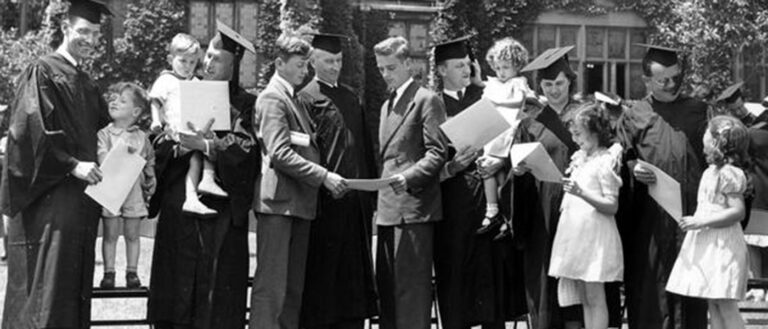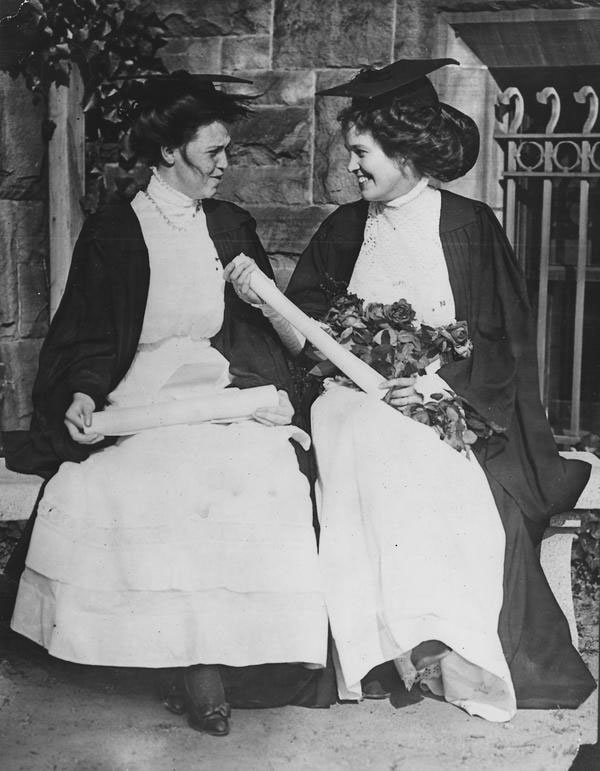
The Daily has partnered with University Archives to shed light on Case Western Reserve University’s history each month. Follow The Daily to get your fill, and check out Digital Case to find even more information.
As the academic year comes to a close, college students, their loved ones and campus communities around the country are preparing to celebrate a rite of passage for graduates: commencement.
At Case Western Reserve, the university’s commencement ceremonies for the Class of 2022 are slated to take place May 14 and 15—the latest iteration of traditions from throughout the university’s storied past.
Over the years, commencement activities have included various social, performance, athletic and ceremonial events—from alumni class reunions, luncheons and picnics to the Hudson Relays, operas, golf tournaments and even a prom. Other annual commencement traditions include academic regalia, class gifts and keynote speakers—all of which continue to take place today.
Read on to learn more about commencement throughout Case Western Reserve’s history.
Commencement timeline
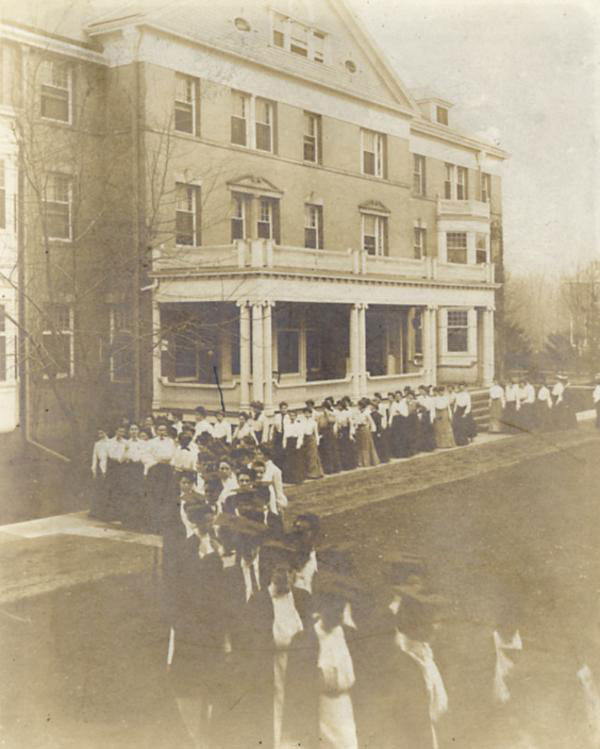
Between 1828 and 1829, Western Reserve College celebrated the end of the academic year with public celebrations. The following year, the college granted official degrees to its first graduating class consisting of four students during its first formal commencement exercise.
From 1844 through 1894, the School of Medicine held separate commencement activities in March, while the rest of Western Reserve University’s schools primarily celebrated in the summer unless events were postponed or canceled—as was the case in 1862 when Western Reserve changed its scheduled ceremony from summer to fall due to the absence of many students fighting in the Civil War. From 1932 through 1941, all of Western Reserve University’s schools shared a single June commencement day.
Meanwhile, Case School of Applied Science held its first commencement for five graduates at the Case Hall Auditorium in downtown Cleveland in 1885.
On September 8, 1967, the newly federated Case Western Reserve University held its first commencement convocation. On May 22, 1985, CWRU held its first outdoor, university-wide commencement ceremony followed by separate diploma ceremonies for each school.
Prominent speakers
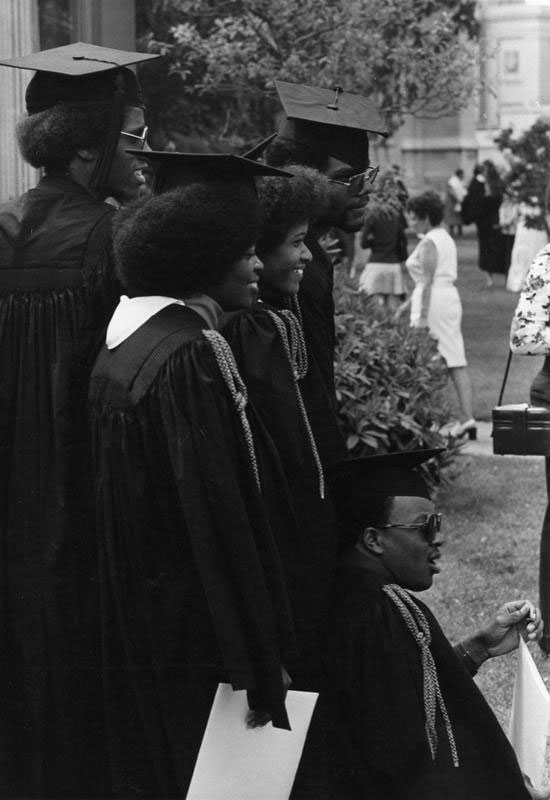
At commencement ceremonies over the years, keynote speakers have addressed graduating classes with advice, encouragement and congratulations. One prominent speaker to grace the stage at Case Western Reserve was Jane Addams, a women’s suffrage activist and Nobel Peace Prize recipient, who addressed the College for Women in 1894.
James Langston Hughes, a poet, playwright and novelist, also addressed graduates at the Adelbert College commencement ceremony in 1964 and received an honorary Doctor of Letters award at Western Reserve University.
Another past speaker who received an honorary Doctor of Humane Letters award was Holocaust survivor and Nobel Peace Prize recipient Ellie Wiesel who spoke at CWRU’s main commencement ceremony in 2004.
This year, Mayor Justin Bibb (LAW ‘18, MGT ‘18) will join the long list of distinguished speakers as returns to deliver the university’s commencement address on May 15, as well as the address for the School of Law’s ceremonies the day prior.
